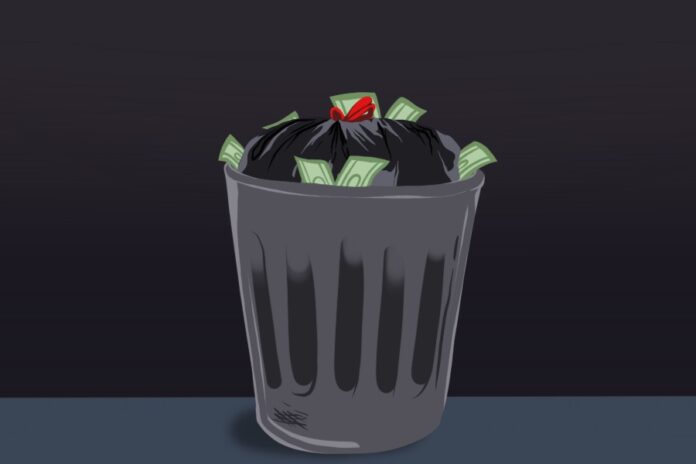Uncertain impact on students living off-campus
Davis residents can expect an increase in solid waste program rates since there was not a majority opposition from the public, as permitted by Proposition 218, to the City Council on Feb. 5. Due to deficits in the program, rates will raise annually for households in the next five years.
There is currently a $90,000 deficiency each month in the solid waste program due to expenditures in the organics collection program introduced in 2016 and to accommodate long-term costs for environmentally beneficial programs. The additional revenue will contribute in relieving the $3 million loan from the city’s wastewater fund to sustain the program.
“With the currently proposed increases, the average rate for a single-family customer with a 65-gallon trash can would see an increase from the current rate of $34 per month, to about $39 per month in 2019, and will reach $51 by 2023,” according to the City of Davis.
The planned rates are set at the maximum possible increases and vary depending on garbage cart size.
Proposition 218, or “Right to Vote on Taxes Act,” dictates that voter approval is required before increases in certain property-related taxes or fees. Prop. 218 notices for the Solid Waste rate increase were sent out on Dec. 4, 2018, allowing 45 days for protests. At the Feb. 5 public hearing, residents shared concerns over the detrimental effects of a spike in garbage rates to their daily lives and the necessity for a 41 percent increase over five years.
Residents inquired if cuts could be made in other areas to avert an increased rate, either through reevaluating the pick-up service or frequency of pick-ups, noting that sometimes their bins are not completely full at time of pick up. The majority of those in protest were long-time Davis property owners. The Council only received 227 written protests at the time of the Council meeting, however, far under the threshold to halt the increase, which stood at 7,909 protests.
The city of Davis’ housing situation is peculiar, as the home ownership rate of 43.8 percent is far lower than the national average of 66.9 percent. Additionally, 57 percent of housing units in Davis are rental properties. With nearly half of the 65,000 or so population of Davis being UC Davis attendees, much of the rental properties are leased by students, which make the impact of such an increase unpredictable. Students may see slightly higher rental prices to adjust for the garbage rate, although it is at the discretion of each property’s landlord.
An assignment posted by the Community and Regional Development 158 course asked students to attend the city council meeting. The meeting notably had more students in attendance; however, none publicly protested the proposal.
Valeria Duenas, a fourth-year political science-public service major, and Shanti Sandosham, a fourth-year sustainable agriculture and food systems major, attended the meeting for the assignment and are both currently living off-campus, making them subject to the rise in garbage rate.
“I don’t expect our rent to increase right away or increase dramatically,” Duenas said. “It’s hard because nobody wants to increase their rates, but also it’s important to have more funds rather than not. It’s an unfortunate thing to do, but kind of necessary.”
Sandosham noted the Council’s increasing awareness surrounding environmental sustainability and need for zero waste-related education.
“It’s also pretty clear that they’re trying to promote their idea of zero waste and that this is one of the ways that they’re trying to do that,” Sandosham said. “It was interesting the fact that not all of [residents’] bins are full. It seems like maybe not everyone is educated about how to use the solid waste bins, so that could be an issue.”
Solid waste rates will experience at most a 13.5 percent increase for 2019, effective March 1. For flexibility, City Council has the option to revisit the plan each year before the proposed increase date.
Written by: Renee Hoh — city@theaggie.org




